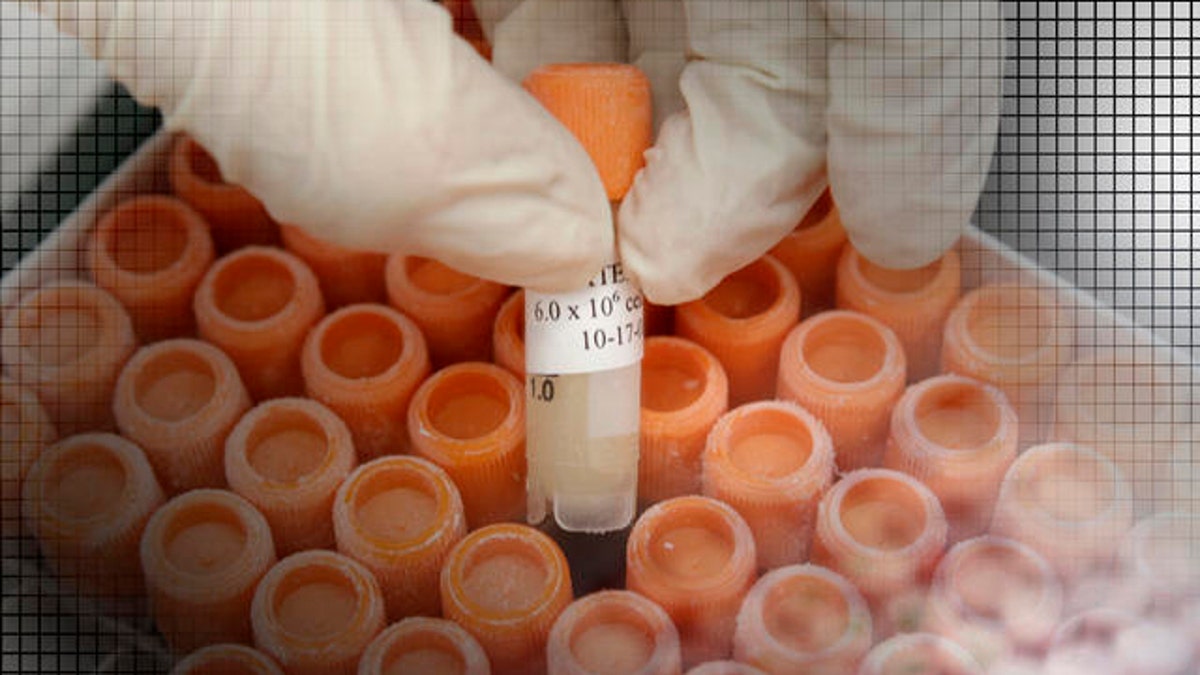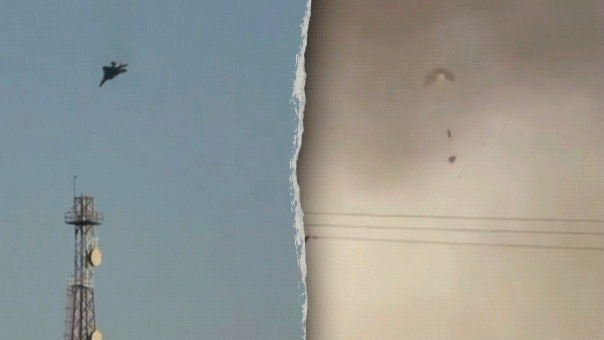
Research associate pulls a frozen vial of human embryonic stem cells at the University of Michigan Center for Human Embryonic Stem Cell Research Laboratory, Ann Arbor, Michigan. (AP)
A U.S. Appeals court on Thursday temporarily lifted a judge's ban on federal funding of human embryonic stem cell research until it rules on the merits of the Obama administration's argument against the ban.
U.S. District Judge Royce Lamberth ruled last month that embryonic stem cell research violated federal law because it involved destroying human embryos. The Obama administration claimed that the ban would set back key research and cost more than a thousand jobs -- an argument that Lamberth rejected on Tuesday -- but the U.S. Court of Appeals for the District of Columbia Circuit agreed Tuesday to lift the ban while the case is appealed.
The court ordered that briefs be filed by Sept. 20, when the three-judge panel will decide whether to extend or end the temporary stay.
Thursday's move "should not be construed in any way as a ruling on the merits" of the Justice Department's motion, said the appeals judges in their three-paragraph order.
Twenty-two stem cell projects around the country were scheduled to receive new checks in September, and thus were presumed to be planning to stop work when their money ran out.
Lisa Hughes, president of the Coalition for the Advancement of Medical Research, says her organization is very pleased that the appeals court has taken the step.
"It is crucial that federal funding for human embryonic stem cell research be restored permanently and this stay is a step in that direction," Hughes said in a statement. "While this issue continues to be argued in the courts, we call on Congress to move swiftly to resolve this issue and secure the future of this important biomedical research."
Supporters of human embryonic stem cell research say it will lead to a better understanding of how to transform cells into desired tissue types and could lead to treatments and possibly cures of multiple diseases.
But critics say it is wrong to destroy human embryos, even days-old embryos that are routinely discarded from fertility clinics.
The Associated Press contributed to this report.










































